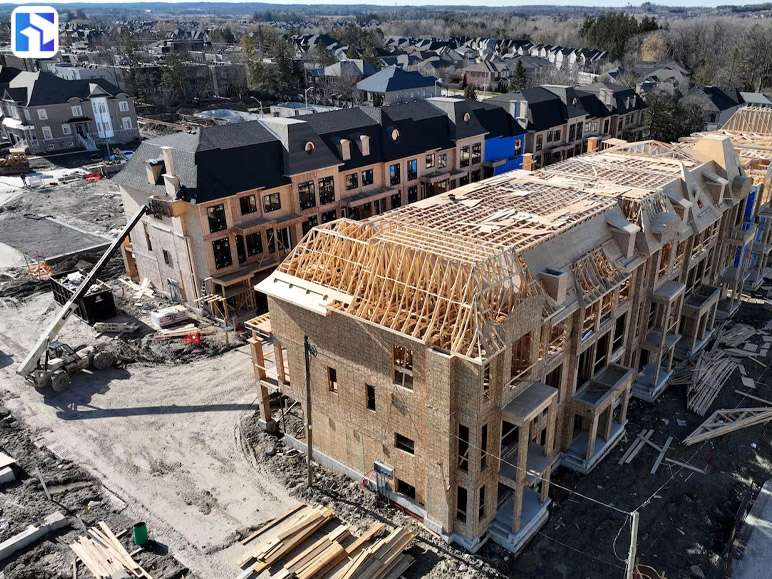The ebb and flow of the housing market is a subject that charms the consideration of property holders, imminent purchasers, and financial investors. The inquiry at the forefront of everybody’s thoughts: When will the housing market experience another downturn?
This article looks to disentangle the secrets behind this repetitive peculiarity, with a sharp spotlight on the landscapes of Florida and California.
After reading the article you will get more profound knowledge about when will the housing market crash and how?
Understanding The Housing Market Cycles
In the realm of real estate, cycles are unavoidable. Understanding the when and for what reason is similar to unraveling a mind-boggling puzzle. The inquiry looms huge: When will the housing market crash again?
Florida’s Real Estate Market

Florida, with its bright sea shores and dynamic urban communities, has often been a point of convergence of real estate conversations. When will the housing market crash in Florida, if by any stretch of the imagination?
Specialists propose that historical patterns, economic indicators, and external factors assume critical parts.
Florida, known for its dynamic market, has experienced fluctuations before. In any case, foreseeing the specific snapshot of a crash is similar to determining the weather – a mix of science and instinct.
The Golden State’s Quandary

California, the exemplification of the Pursuit of happiness, has seen its housing market take off higher than ever. Yet, murmurs of concern wait: When will the housing market crash again in California? Examiners highlight factors – from supply and demand dynamics to economic versatility. California’s housing market, set apart by pinnacles and valleys, holds privileged insights to its fate. Understanding the patterns and triggers becomes fundamental for those navigating the real estate landscape.
Impacts Of Economic Indicators

When endeavoring to foresee the fate of the housing market, one should give close consideration to economic indicators. Joblessness rates, interest rates, and Gross domestic product growth all play a critical part in molding the real estate landscape. In California, for example, where technology and innovation fuel economic engines, changes in these indicators can echo through the housing market. The inquiry transforms into a nuanced investigation of economic complexities: When will the housing market crash in California?
Supply and Demand Dynamics

A basic guideline in economics, supply and demand dynamics, holds the way to understanding real estate fluctuations. In Florida, where retired people look for the charm of warm environments, and in California, where the appeal of the tech business is attractive, the fragile harmony between supply and demand influences the housing market. The subject of when the housing market will crash again relies on this balance – a dance that answers evolving demographics, urbanization trends, and economic powers.
External Factors and Black Swans

While historical data and economic indicators give a guide, the housing market isn’t resistant to external shocks. The global financial emergency of 2008 fills in as an obvious update. Black swan occasions, unanticipated and impactful, can adjust the direction of real estate markets. When will the housing market crash Florida and California, both vulnerable to external influences, add a layer of unusualness to the subject of when the housing market will crash again.
Impact of Pandemic on Canadian Real Estate

The Coronavirus pandemic reshaped the dynamics of Canada’s real estate. At first, there was a respite in the market as vulnerability lingered. Nonetheless, as remote work turned into the standard, there was a change in perspective in housing inclinations. The craving for more space, combined with low-interest rates, strengthened the demand for bigger homes and properties with devoted work areas. This change in demand further moved prices up.
Supply Constraints and Construction Challenges

The construction area faces its arrangement of challenges, adding to supply constraints. Defers in getting grants, rising material costs, and a lack of gifted work have hampered construction timetables. These constraints limit the mixture of new housing units into the market, exasperating the awkwardness between supply and demand, thereby impacting affordability.
Housing Affordability Concerns

The heightening prices in Canada’s real estate have raised concerns about housing affordability. For some Canadians, particularly the more youthful segment and center-income workers, homeownership appears to be a slippery dream. The broadening hole between income growth and housing costs has ignited discussions about the requirement for creative answers to span this affordability gap.
The Role of Real Estate Speculation and Regulations

Speculation about when will the housing market crash has been a disputed matter. Flipping properties for easy gains and speculative ventures have added to the flood in prices, compounding affordability issues. Government interventions through regulations, for example, unfamiliar purchaser charges and stricter loaning necessities, plan to control speculation and settle the market.
Sustainability and Green Initiatives

Lately, there has been a recognizable shift towards sustainability in real estate. Green initiatives, like energy-productive structures and eco-friendly designs, have gained momentum. Purchasers are progressively naturally mindful of esteem properties, impacting market trends and driving innovation inside the construction and real estate areas.
The Influence of Demographics

Segment shifts, including a maturing populace and various social inclinations, essentially impact real estate dynamics. The inclinations of various age gatherings, from recent college grads to children of post-war America, influence the sorts of properties in demand. Understanding these segment trends is urgent for engineers and financial investors to adjust their offerings to develop customer needs.
Technology’s Role in Real Estate Evolution

Progressions in technology have revolutionized the real estate landscape. From virtual visits and online postings to blockchain-based property transactions, technology has made property transactions more open and straightforward. This evolution keeps on reshaping how purchasers and merchants collaborate in the market.
Conclusion

In the complicated embroidery of the real estate market, foreseeing the specific snapshot of a housing market crash stays a test. Florida and California, with their remarkable dynamics, present a captivating landscape for those charmed by the ebb and flow of property estimations. As people, financial investors, and networks explore this unsure territory, the mission for understanding proceeds – an excursion set apart by interest and the longing to grasp the subtleties of a consistently developing market.
Additional:
- Canada Real Estate – Why Is Real Estate So Expensive In Canada
- Atlanta Real Estate Market – How Is The Real Estate Market In Atlanta
- Florida Real Estate Market – How Is The Real Estate Market In Florida

